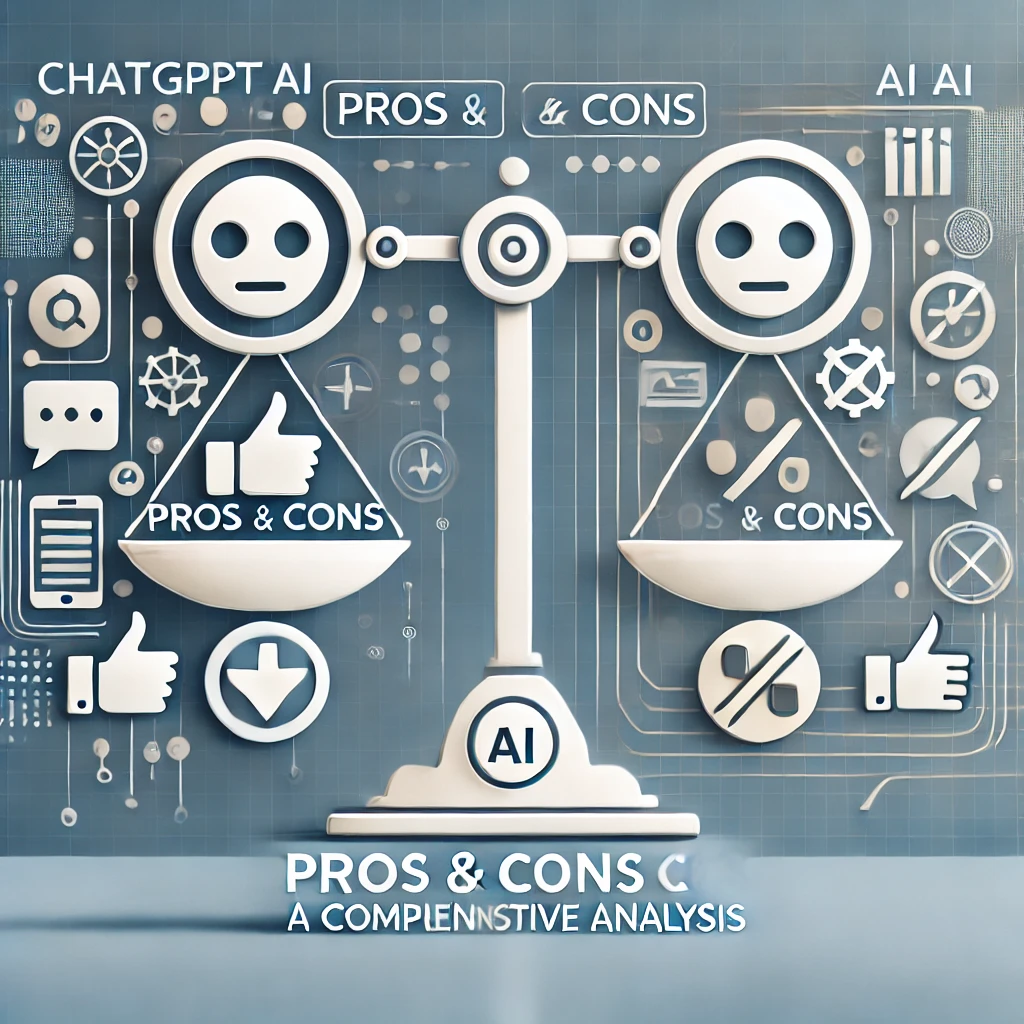ChatGPT AI: The Pros and Cons of Conversational AI
Artificial intelligence (AI) has quickly moved from science fiction into our everyday lives, reshaping industries and how we interact with technology. One of the most talked-about applications is ChatGPT, an AI language model designed to hold human-like conversations and assist with all kinds of tasks.
Like any technology, ChatGPT comes with both strengths and limitations. Here’s a closer look at the pros and cons of using it in business and daily life.
👍 The Pros of ChatGPT
Natural Conversations
ChatGPT is built to understand context and respond in natural language, making interactions feel more seamless and meaningful than traditional bots.
Always Available
Unlike human agents, ChatGPT never sleeps. It’s available 24/7, offering instant support no matter the time zone or location.
Scalable
It can manage thousands of conversations at once, making it ideal for businesses with large customer bases. This reduces wait times and keeps service consistent.
Cost-Effective
By automating repetitive tasks and customer support, ChatGPT can cut operational costs significantly, freeing up human employees for higher-value work.
Personalization
The model can adapt to user preferences and behaviors over time, creating a more personalized and engaging experience.
👎 The Cons of ChatGPT
No Emotional Intelligence
While it can mimic empathy, ChatGPT doesn’t actually understand emotions. It may misread complex cues, leading to responses that feel off or unsatisfying.
Limited Knowledge in Niche Areas
Its knowledge depends on training data. For highly technical or specialized topics, answers may be incomplete or inaccurate.
Privacy Concerns
Since interactions involve sharing information, businesses must ensure strong data protection measures to safeguard user privacy.
Bias and Misinformation Risks
AI can reflect biases from its training data and may occasionally produce inaccurate or misleading information if not carefully monitored.
Overreliance
Depending too heavily on ChatGPT for critical decisions is risky. Human oversight is still necessary to catch mistakes and provide judgment where AI falls short.
Conclusion
ChatGPT AI offers real value: natural communication, around-the-clock availability, scalability, and cost savings. It’s a powerful tool for businesses looking to improve customer service and for individuals seeking quick, intelligent assistance.
At the same time, it’s important to stay mindful of its limitations — from emotional gaps to privacy and bias concerns. The best results come when ChatGPT is used as a complement to human expertise, not a replacement for it.
Handled wisely, ChatGPT can enhance communication, boost productivity, and continue to be a game-changer in how we interact with technology.
